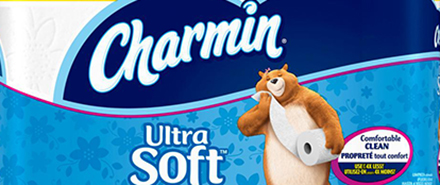
The voracious use of toilet paper in the United States, with the average American using almost three rolls each week and major manufacturers spurning alternative fibres, is destroying Canada’s forests and causing widespread environmental damage, according to a report from two international environmental groups. Source: National Post
A report on tissue paper use gave failing grades to the leading toilet paper, tissue and paper towel brands for using only virgin fibre pulp, mostly from Canada’s old boreal forests.
The report from Natural Resources Defense Council and Stand.earth called The Issue with Tissue hammered the three biggest tissue producers in the US – Procter & Gamble, Georgia-Pacific and Kimberly-Clark.
“None of their flagship at-home brands contain recycled materials or alternative fibres, and each company misses other key commitments necessary to ensure their products do not come at the expense of the boreal forest,” according to the report.
The report also unrolls the incredible toilet paper use by consumers in the US, noting that just 150 years ago Americans used corncobs to clean up, but have since been drummed by marketing campaigns to demand the softest tissue they can get, which comes from Canada’s softwood.
The US consumes more toilet paper than any other country, almost three rolls per person each week followed by Germany and Britain in annual toilet paper consumption – they far out-pace other nations.
Compounding the environmental concerns is that all of those trees turned into pulp and made into tissue are then flushed down the toilet without recycling diversion.
The organizations are calling for alternative content, including recycled wood pulp, wheat straw and bamboo.
Damon Jones, vice president, global communications at Procter & Gamble said consumers demand soft, absorbent tissue.
“We know that virgin fibre in tissue products is significantly preferred by consumers, and ‘does the job’ much more efficiently than recycled or non-wood products,” Mr Jones said.
He said P&G’s products, including its packaging and inner cores, use sustainable sourced or recycled content and its wood fibre comes from responsibly managed forests.
Similarly, Georgia-Pacific said softness and absorbency are what consumers want and that is best accommodated with virgin pulp. The company “takes steps to ensure that we are responsibly sourcing wood and wood fibre for our pulp, paper and wood products operations,” a spokeswoman said.
Kimberly-Clark said it plans to cut virgin pulp content in half by 2025. At the same time, spokesman Terry Balluck said, the company will increase “use of low-impact alternative and recycled fibres where credible analysis indicates that they are environmentally and socially preferable to other virgin fibre sources and do not lead to loss of necessary food crops or high conservation value ecosystems.”







